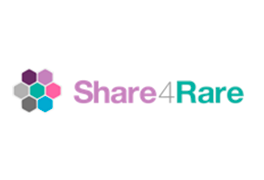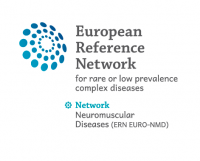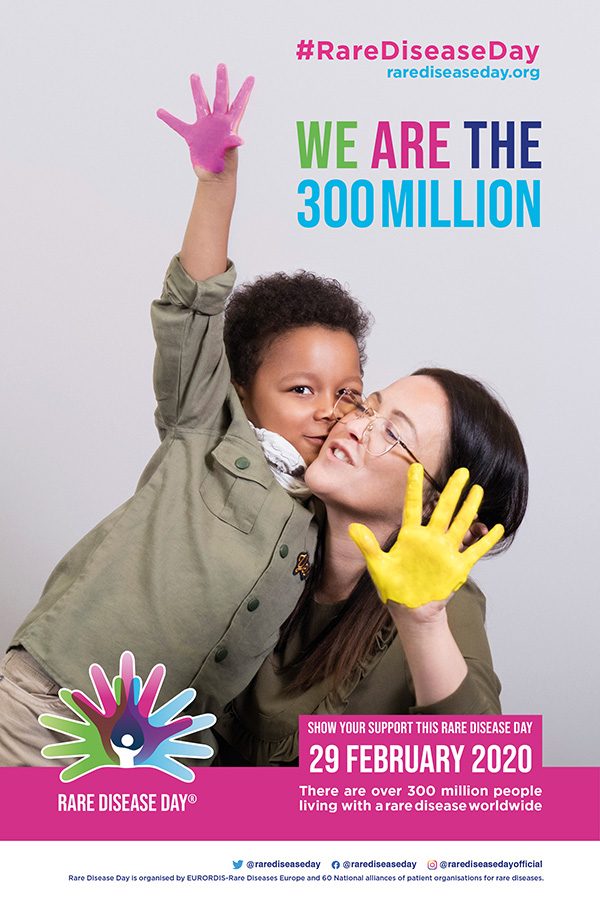|
Newsletter - February 2020 ͏ ͏ ͏ ͏ ͏ ͏ ͏ ͏ ͏ ͏ ͏ ͏ ͏ ͏ ͏ ͏ ͏ ͏ ͏ ͏ ͏ ͏ ͏ ͏ ͏ ͏ ͏ ͏ ͏ ͏ ͏ ͏ ͏ ͏ ͏ ͏ ͏ ͏ ͏ ͏ ͏ ͏ ͏ ͏ ͏ ͏ ͏ ͏ ͏ ͏ ͏ ͏ ͏ ͏ ͏ ͏ ͏ ͏ ͏ ͏ ͏ ͏ ͏ ͏ ͏ ͏ ͏ ͏ ͏ ͏ ͏ ͏ ͏ ͏ ͏ ͏ ͏ ͏ ͏ ͏ ͏ ͏ ͏ ͏ ͏ ͏ ͏ ͏ ͏ ͏ ͏ ͏ ͏ ͏ ͏ ͏ ͏ ͏ ͏ ͏ ͏ ͏ ͏ ͏ ͏ ͏ ͏ ͏ ͏ ͏ ͏ ͏ ͏ ͏ ͏ ͏ ͏ ͏ ͏ ͏ ͏ ͏ ͏ ͏ ͏ ͏ ͏ ͏ ͏ ͏ ͏ ͏ ͏ ͏ ͏ ͏ ͏ ͏ ͏ ͏ ͏ ͏ ͏ ͏ ͏ ͏ ͏ ͏ ͏ ͏ ͏ ͏ ͏ ͏ ͏ ͏ ͏ ͏ ͏ ͏ ͏ ͏ ͏ ͏ ͏ ͏ ͏ ͏ ͏ ͏ ͏ ͏ ͏ ͏
|
| |
Rare Disease Day 2020 - it's almost here!
Rare Disease Day 2020 will take place on Saturday 29th February and around the world many awareness raising events have been organised. We would like to wish everyone involved all the very best, we hope you have a very successful and enjoyable day.
You also still have time to raise awareness on the day, you could get involved via social media, talk to a friend or look to take part in an event. Events are organised around the globe this year find out what is happening in your area by visiting the Rare Disease Day Website.
|
|
|
|
| |
EURO-NMD Board Meeting Summer - 11 July 2020
Our summer board meeting will take place in Valencia, Spain on the 11th July 2020 during this year's ICNMD Congress. We hope that by holding our board meeting during this congress it will make attendance logistically simpler for many of our board members.
|
|
|
|
| |
Translational Summer School - Applications are being taken
Our first applications have been received to attend this year's translational research summer school which is organised in association with TREAT-NMD.
The summer school provides a wonderful opportunity to furnish yourself with a solid understanding of the translational research pathway set in a neuromuscular environment.
This, coupled with the fact that this year's summer school will cost most attendees only €100 means we are expecting it to be more popular than ever!
|
|
|
|
| |
Help us explore how Share4Rare can work for you!
| |

|
Share4Rare is a global community of rare disease patients and carers. The platform provides a secure online space for users to connect, learn about their disease and participate in research. Share4Rare would like to invite you to participate in a survey to learn more about how the platform interacts with clinicians, researchers, patients and patient organisations. You do not need to have experience with Share4Rare in order to take part.
Find out more about the Share4Rare community:
|
|
|
|
|
| |
Publication - Circulating MyomiRs as Potential Biomarkers to Monitor Response to Nusinersen in Pediatric SMA Patients
Spinal muscular atrophy (SMA) is an autosomal recessive disorder caused by mutations in survival motor neuron (SMN) 1 gene, resulting in a truncated SMN protein responsible for degeneration of brain stem and spinal motor neurons.
The paralogous SMN2 gene partially compensates full-length SMN protein production, mitigating the phenotype. Antisense oligonucleotide nusinersen (Spinraza®) enhances SMN2 gene expression. SMN is involved in RNA metabolism and biogenesis of microRNA (miRNA), key gene expression modulators, whose dysregulation contributes to neuromuscular diseases.
They are stable in body fluids and may reflect distinct pathophysiological states, thus acting as promising biomarkers. Muscle-specific miRNAs (myomiRs) as biomarkers for clinical use in SMA have not been investigated yet.
Here, we analyzed the expression of miR-133a, -133b, -206 and -1, in serum of 21 infantile SMA patients at baseline and after 6 months of nusinersen treatment, and correlated molecular data with response to therapy evaluated by the Hammersmith Functional Motor Scale Expanded (HFMSE). Our results demonstrate that myomiR serological levels decrease over disease course upon nusinersen treatment. Notably, miR-133a reduction predicted patients’ response to therapy.
Our findings identify myomiRs as potential biomarkers to monitor disease progression and therapeutic response in SMA patients.
|
|
|
|
| |
Research Training Workshop
The aim of this call is to identify the most suitable proposals for the organization of research training workshops of 2 days targeted to the ERNs needs. Selected research training workshops will have to train ERN researchers and clinicians in ERN relevant innovative training themes. Training themes may include innovative research methodologies, diagnostic research methodologies, interdisciplinary treatment approaches, such as gene therapy and transplantation, etc. Moreover, the workshops will be aiming to provide a cross-ERN added value. The workshops will be implemented as two-day events. Topics can be proposed by the ERNs or by investigators belonging to EJP RD beneficiary institutions. There will be two deadlines for workshop topic applications per year. Topics will be selected taking into consideration several elements such as: - Addressing cross-cutting issues relevant for ERNs
- Multidisciplinary aspects
- Fostering collaboration (within and between ERNs)
- No overlap with other EJP RD training activities
- Relevance of the topic for the ERN(s)
- Benefits for the RD community by the workshop
- Appropriate training methodology
Applicants profile: Affiliated to any EJP RD beneficiary institution OR Affiliated to an ERN Full Member OR Affiliated to an ERN Partner institution at the time when the application is submitted, as well as during the period of the execution of the workshop The call opened on the 3rd of February 2020 and the deadline for submissions is 2nd of March 2020
|
|
|
|
| |
Research Mobility Fellowship
Aim:
This fellowship aims to financially support PhD students and medical doctors working in ERN-member institutions to undertake short scientific visits (secondments) up to 3 months fostering specialist research training outside their countries of residence and within one of the ERN host institutions. Through this training measure the fellows should acquire at their host (secondment) institution new competences and knowledge related to their research on rare diseases and with benefit to their ERN. Applicants/Application profile: - PhD students with a minimum of one year of research experience OR physicians having finished their first year of specialist training
- Be affiliated to an ERN Full Member or to an ERN-Affiliated Partner Institution from one of the 24 ERNs at the time when the application is submitted, as well as during the proposed period of the training stay
- The host (secondment) institutions must be Full or Affiliated Members of an ERN at the time when the application is submitted, as well as during the proposed period of the training stay
- Added value to ERN of the mobility stay
The call opened on 3rd of February 2020 and the deadline for submissions is 16th of March 2020
|
|
|
|
| |
Helpdesk Assistant - Paris

| |
Located in Paris at the heart of the largest European hospital, Pitié-Salpêtrière, the Institute of Myology was created in 1996 by AFM-Telethon, a patient’s organization. Its goal: Promote Myology and have it accepted as a standalone clinical and scientific discipline. The Institute of Myology coordinates, around the patient, medical care, basic research, applied research, clinical research and teaching. Main Purpose
The main objective of the post is to provide helpdesk support to the European Reference Network, EURO-NMD, and the Coordination team. This role will support the administrative systems and platforms which facilitate this network and to provide support to the Network Partners and Coordination team at the Institute of Myology. Further details and job description in English
Further details and job description in French
|
|
|
|
|
| |
Two Clinical Research Fellowships - London
| |

|
The Centre for Neuromuscular Diseases in the Department of Neuromuscular Diseases is the largest clinical and research centre in the UK for patients with diseases such as peripheral neuropathy. Two new posts are available in the Inherited peripheral nerve group in this centre, led by Professor Mary Reilly. The posts are both based at the Centre for Neuromuscular Diseases in UCL and each offer an exciting opportunity for a neurologist interested in inherited neuropathies. Post 1 is a 3-4 year research fellowship suitable for a neurologist in training who wants to undertake a PhD. The project encompasses a natural history study, biomarker development (including MRI) and clinical trials in patients with Charcot Marie Tooth disease (CMT). The fellow will also have the opportunity to train in all aspects (including molecular genetics) of the inherited neuropathies. Post 2 is a 3-year research fellowship also suitable for a neurologist in training who wants to undertake a PhD. The project is focussed on identifying novel genetic causes and understanding the pathogenesis of the inherited neuropathies especially CMT. The post holder will have a unique opportunity of being affiliated with both the NIH funded international Inherited Neuropathy Consortium (INC) and the newly established MRC funded International Centre for Genomic Medicine in Neuromuscular Diseases (ICGNMD) which aims to deliver a deeply-phenotyped “trial-ready” international cohort of NMD patients. The fellow will also have the opportunity to train in all aspects (including clinical phenotyping and clinic trials) of the inherited neuropathies. Both posts are suitable for an adult neurology trainee interested in inherited peripheral neuropathies. Applicants should hold GMC registration and MRCP (or equivalent), have excellent organisational and IT skills and the ability to act independently. A very high level of patient care is also required. Both posts provide excellent training opportunities to broaden clinical and research skills and generate publications. The research fellowships are for three years in the first instance starting in August 2020 (the start date is flexible for both posts). Please find out more about the posts and how to apply via UCL’s online recruitment system – www.ucl.ac.uk/hr/jobs
|
|
|
|
|





